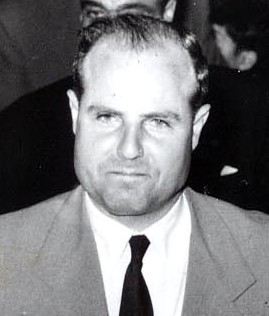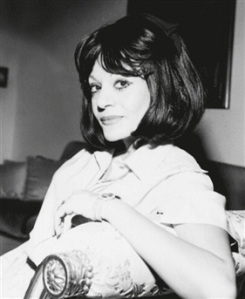Related Research Articles

Ghassan Kanafani was a Palestinian author and a leading member of the Popular Front for the Liberation of Palestine (PFLP). On 8 July 1972, he was assassinated by Mossad.
Samir Kassir was a Lebanese-Palestinian journalist of An-Nahar and professor of history at Saint-Joseph University, who was an advocate of democracy and prominent opponent of the Syrian occupation of Lebanon. He was assassinated in 2005 as part of a series of assassinations of anti-Syria Lebanese political figures such as Rafic Hariri and George Hawi.

An-Nahar is a leading Arabic-language daily newspaper published in Lebanon. In the 1980s, An-Nahar was described by the New York Times and Time Magazine as the newspaper of record for the entire Arab world.

Elias Khoury is a Lebanese novelist and public intellectual. His novels and literary criticism have been translated into several languages. In 2000, he won the Prize of Palestine for his book Gate of the Sun, and he won the Al Owais Award for fiction writing in 2007. Khoury has also written three plays and two screenplays.
Al-Hadaf, is a Palestinian weekly political and cultural magazine published in Lebanon.

William Amine Hawi was a Lebanese commander of the Kataeb Party better known in English as the Phalange, a right-wing Christian political party in Lebanon.

The National Order of the Cedar is the highest state order of Lebanon, established on 31 December 1936. It is offered in five grades.

Palestinian literature refers to the Arabic language novels, short stories and poems produced by Palestinians. Forming part of the broader genre of Arabic literature, contemporary Palestinian literature is often characterized by its heightened sense of irony and the exploration of existential themes and issues of identity. References to the subjects of resistance to occupation, exile, loss, and love and longing for homeland are also common.

Ghadah Al-Samman is a Syrian writer, journalist and novelist born in Damascus in 1942 to a prominent and conservative Damascene family. Her father was Ahmed Al-Samman, a president of the Syrian University. She is distantly related to poet Nizar Qabbani, and was deeply influenced by him after her mother died at a very young age.
Shafiq al-Hout also spelled Shafik al-Hut was a Palestinian politician and writer. Born in Jaffa, he and his family fled to Beirut at the onset of the 1948 Arab-Israeli War. There, al-Hout became a journalist at Al Hawadeth magazine. Using it as a platform, he founded the Palestine Liberation Front in 1961 and later became a founder of the Palestine Liberation Organization (PLO) in 1964. He remained a senior member of the organization, representing it in Lebanon and the United Nations General Assembly. Initially a close aid to Yasser Arafat, al-Hout resigned from his position on the PLO Executive Committee, in protest of Arafat's signing of the Oslo Accords.

Al Anwar was an Arabic daily newspaper published in Beirut, Lebanon. It was founded in 1959 and was one of the leading dailies in Lebanon.

Pierre Sadek was a Lebanese caricaturist, considered a pioneer of political cartooning and a great defender of freedom of expression.
Amjad Nasser, known with the pseudonym of Yahya Numeiri al-Naimat, was a London-based Jordanian writer, journalist and poet and one of the pioneers of modern Arabic poetry and Arabic prose poem.
Kamal Abdel Hafiz Adwan, also spelt as Kamal Udwan, was a Palestinian politician and one of the top leaders in the Palestinian Liberation Organization. He was killed during a 1973 Israeli raid in Lebanon.
Suheil Kiwan is a Palestinian journalist and novelist. He won the Tawfiq Zayyad Institution Award in 2002 for his critical study titled ‘Ghassan Kanafani: Al-Jamal Al-Hazeen wa Al-‘Ata’ Al-Mutawahij'.
The Sad Orange Land is a collection of stories by the Palestinian writer Ghassan Kanafani, it is the second stories collection. originally published in 1962, in which he attempted to convey the Palestinian character in the face of its fate both within the Palestinian interior, such as stories:
Bayan Nuwayhed is a Palestinian journalist, academic, historian and a member of the Palestine Liberation Organization (PLO). She is the author of the book entitled Sabra and Shatila: September 1982.
References
- 1 2 The Middle East and North Africa 2003 (49th ed.). London; New York: Europa Publications. 2002. p. 737. ISBN 978-1-85743-132-2.
- ↑ "Dar Assayad's Publications". B. Freiha. Archived from the original on 26 September 2013. Retrieved 24 September 2013.
- ↑ "Company profile". Dar Assayad. Retrieved 24 September 2013.
- ↑ Nasser Kalawoun (2000). The Struggle For Lebanon: A Modern History of Lebanese-Egyptian Relations. London; New York: I.B. Tauris. p. 37. ISBN 978-1-86064-423-8.
- ↑ "Dar Assayad". Kompass. Archived from the original on 27 September 2013.
- ↑ "Lebanon Press". Press Reference. Retrieved 27 September 2013.
- 1 2 3 4 5 6 "Assayad" (PDF). Dar Assayad. Retrieved 24 September 2013.
- ↑ "75-Year-Old Publisher Dar Assayad to Shut Down". Blog Baladi. 29 September 2018.
- ↑ "Bayan Nuwayhed al-Hout". Interactive Encyclopedia of the Palestine Question.
- ↑ Elie Hajj (26 April 2013). "Pierre Sadek Defended the Right to Criticize Until His Dying Breath". Al Monitor .
- ↑ Mouin Rabbani (2005). "Kanafani, Ghassan". In Philip Mattar (ed.). Encyclopedia of the Palestinians. New York: Facts on File, Inc. p. 275. ISBN 978-0-8160-6986-6.
- ↑ "Mrs. Leila Ben Ali's interview to Lebanese Assayad magazine". Tunis Afrique Presse . 14 February 2010.